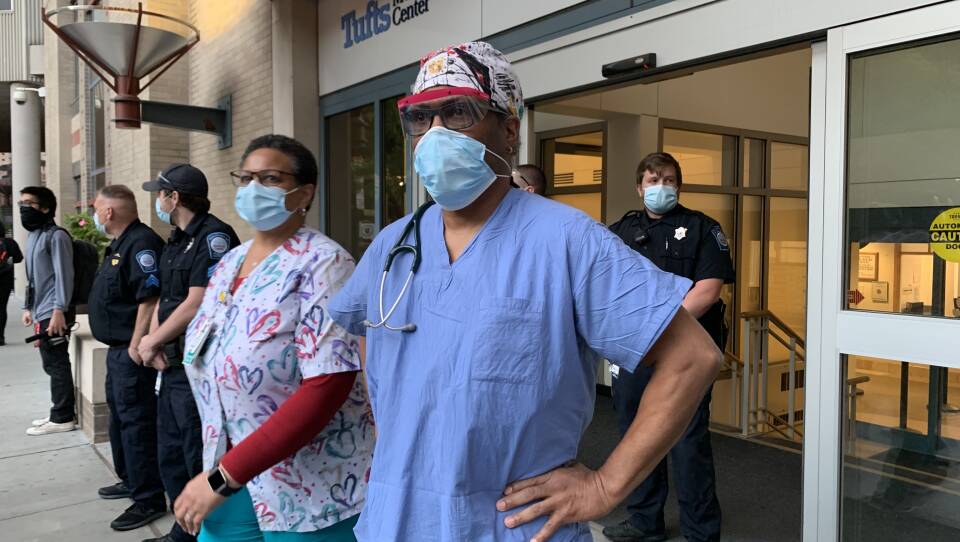Boston's response to the police killing of George Floyd last month in Minneapolis has been two weeks of protests, vigils and reflections from the community. On this episode of 'The Check In,' we take a moment to hear from some of the black voices from our reporting that stuck with us.
We start with emergency room physician Furman Walls, who stood outside the doors of the Tufts Medical Center and began to cry as protesters passed by and cheered for him and his colleagues on May 31.
"It's inspiring. I was feeling sad and dejected because I realized that what happened in Minneapolis could happen to any one of us, and the fact that I did this job didn't protect me from what happened there. And so it's it's just inspiring to see people standing up and saying it's not right," Walls said. "We come to work and we try to do a good job, and you take care of people and then you realize you leave work and your life is at risk for something you've never done. It's nice to know that people stand up and say no."
A few weeks ago, we talked about ongoing protests against shutdowns, where medical professionals were being shouted at by protesters. Now we're seeing medical professionals protesting in the crowd. A doctor who asked to remain anonymous to protect their job security held a "white coats for black lives" sign at a protest last week in the Boston Common. When asked why they would break social distancing rules to stand in a crowd, the doctor argued that racism in the larger medical world is a more pressing issue.
"Racial disparities in infant and maternal mortality, and racial disparities highlighted recently with the COVID pandemic. Racial disparities in pain medication, administration and hospitals are all reasons why physicians should be out protesting," they said.
We hear from Olivia Martin, a South Boston native who protested last week in Roxbury's Nubian Square.
"I came from Ku Klux Klan land, when it was alright to say they hated us, but at least you knew who they was, and they wasn't hiding behind three-piece suits," Martin said. "You kill my child, you kill my mama, you kill my father, you kill my brother, you kill my nephew and you kill me. ... For what?"
We spoke to Darrel Jones, who served 32 years in prison for a murder he did not commit, and was fully exonerated last year. Jones came to a protest at the Boston Common last week and was amazed to see the world seeming to move towards a revolution.
"The races together, that's what I love," Jones told WGBH News. "And that's what they've got to focus on. It's not so much just what has happened once, but focus on that if we unified like this and we show that as whites, blacks, Hispanics, Asians, you know, as people, we're together, then the rest of the country has to fall in place. It is a divisive game that gets played. And if we can win that game and show our unity as a people, we will win."
And finally, we heard a poem by Zenaida Peterson, who organized a vigil with their Boston-based poetry organization FEMS (Feminine Empowerment Movement Slam).





